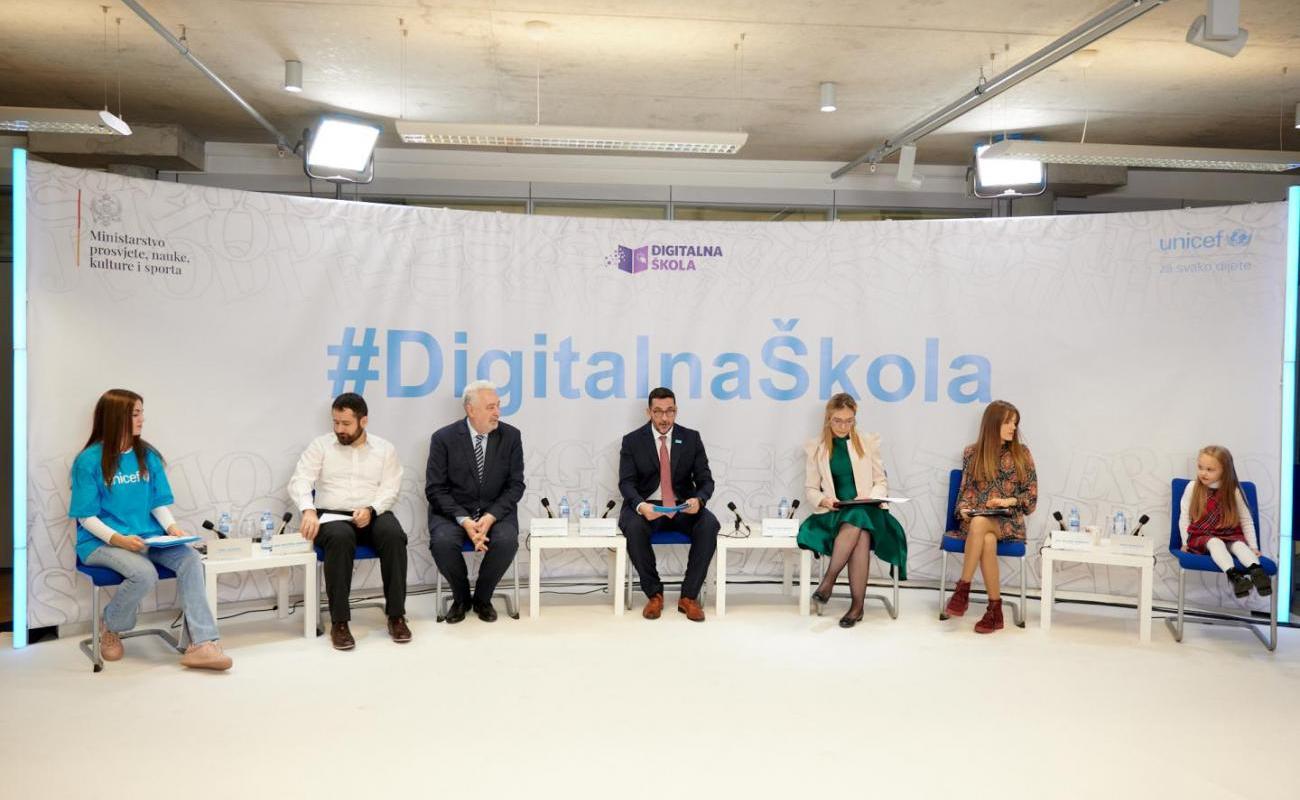Digital School launched – a platform for learning, teaching and cooperation
Digital School is based on the Learning Passport, jointly developed by UNICEF, Microsoft and the University of Cambridge, and is currently used in 17 countries around the world.

Podgorica, 15 December 2021 - Digital School is based on the Learning Passport, jointly developed by UNICEF, Microsoft and the University of Cambridge, and is currently used in 17 countries around the world.
Digital School is aligned with the teaching and learning in person, and its goal is to strengthen the quality and inclusivity of education during and after the COVID-19 pandemic. It is available via smartphone, tablet and accounts on www.digitalnaskola.edu, and all students, teachers and parents can access it from their edu.me email address. It provides a range of quality digital content, including 400 courses with 8,000 lessons. The content is currently focused on supporting early learning and the first three grades of primary education, but this platform also offers digital materials for other levels of education. The plan is to expand the platform to cover all grades all the way to the end of high school.
The Minister of Education, Science, Culture and Sports, Prof. Vesna Bratic, pointed out that further work on improving the platform was also identified in the Strategy for Digitization of the Education System
Afshan Khan, UNICEF’s Regional Director for Europe and Central Asia, reminded that during the period when schools were closed, almost every fifth family in Montenegro did not have access to a computer connected to the Internet, which would have enabled the children to continue learning.
Digital School offers preschool children an abundance of educational interactive games, and elementary and high school students can find classes from the #UčiDoma platform, which is supplemented by guidelines for independent learning, exercises, tests and interactive activities. Materials to support inclusive education are also available, as well as useful resources for informal education related to online security, violence prevention, sports, health, digital technologies, etc.
UNICEF Montenegro Representative, Juan Santander, said that ensuring the right of every child to a quality education is an effort of the whole society.
Digital School will be useful in helping teachers create effective work plans, strengthen the quality of inclusive education, and improve pedagogy, access to training on information and communication technologies, etc.
The platform also offers parents a range of useful content on parenting and healthy living styles.
UNICEF young reporter Ana Lazovic, a high school student, pointed out that there is currently a limited amount of material on the platform intended for her peers, but that she definitely recommends that they use it. She also made a proposal for further improvement of the platform.
UNICEF will continue to support the Government of Montenegro in the further development of Digital School in the forthcoming period, as well as in providing access to this platform for every child and adolescent in the country.
